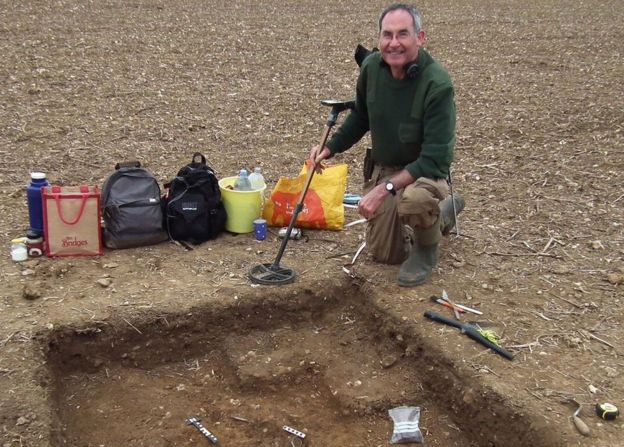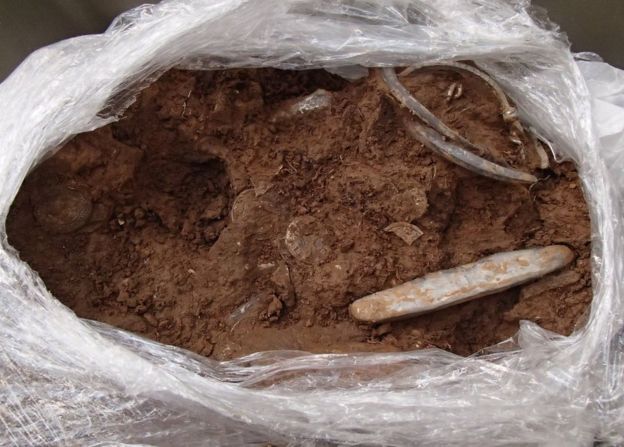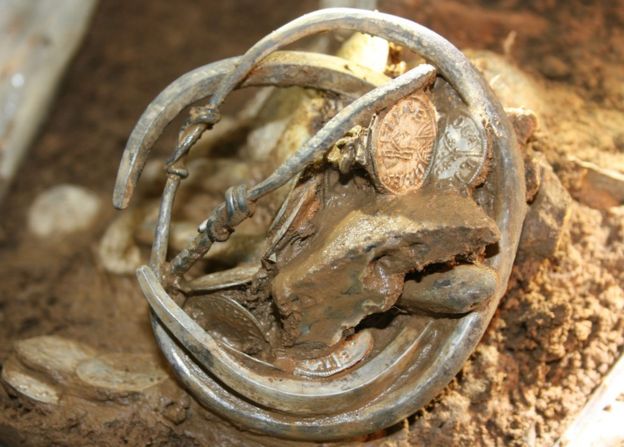A rare Viking hoard of arm rings, coins and silver ingots has been unearthed in Oxfordshire. The hoard was buried near Watlington around the end of the 870s, in the time of the "Last Kingdom".

[Credit: Trustees of the British Museum]
This was when the Anglo-Saxon kingdoms of Mercia and Wessex were fighting for their survival from the threat of the Vikings, which was to lead to the unification of England.
Archaeologists have called the hoard a "nationally significant find". The hoard was discovered by 60-year-old metal detectorist James Mather.

[Credit: Portable Antiquities Scheme]
He said: "I hope these amazing artefacts can be displayed by a local museum to be enjoyed by generations to come."
The find in October was lifted in a block of soil and brought to the British Museum, where it was excavated and studied by experts from the British Museum in London and the Ashmolean Museum in Oxford.

[Credit: Trustees of the British Museum]
The hoard consists of 186 coins - some fragmentary - and includes rarities from the reign of King Alfred "the Great" of Wessex, who reigned from 871 to 899, and King Ceolwulf II, who reigned in Mercia from 874 to 79.
During this period, King Alfred achieved a decisive victory over the Vikings at the famous Battle of Edington in 878, prompting them to move north of the Thames and travel to East Anglia through the kingdom of Mercia.

[Credit: Trustees of the British Museum]
Gareth Williams, curator of early medieval coinage at the British Museum, said it was a key moment in English history as Alfred forged a new kingdom of England by taking control of Mercia.
He said: "This hoard has the potential to provide important new information on relations between Mercia and Wessex at the beginning of that process."
Seven items of jewellery and 15 ingots were also found.
Culture Minister Ed Vaizey, said "Fascinating finds like this Viking hoard are a great example of the one million discoveries that have been unearthed by the public since 1997."
Under the Treasure Act 1996, there is a legal obligation for finders to report such treasures.
Source: BBC News Website [December 12, 2015]